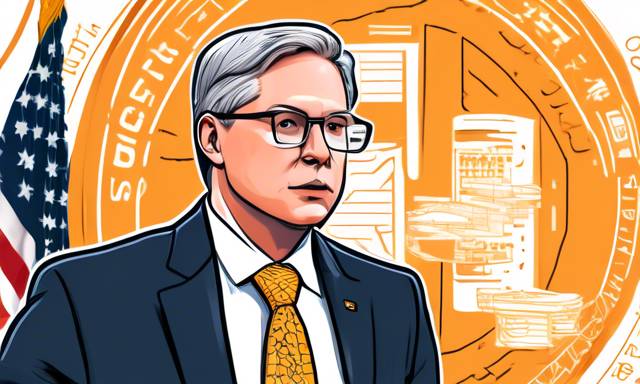Could South Korea’s Crypto ETF Shift Spark a New Wave of Market Opportunities?
Hey there! So, you’re probably wondering about the implications of South Korea potentially lifting its ban on spot cryptocurrency exchange-traded funds (ETFs). Let me break it down for you in a way that feels more like a chat over coffee than a boring lecture. Grab your favorite drink, and let’s dive into some exciting stuff that might just pique your interest!
Key Takeaways:
- The Financial Services Commission (FSC) in South Korea is reviewing its ban on spot crypto ETFs.
- A new advisory committee has been formed to look into crypto regulations.
- If the ban is lifted, it could pave the way for new investment opportunities in the digital asset space.
- Concerns are being raised about the dominance of exchanges like Upbit in the market.
Why Now? The Push for Change
Let’s kick things off with why this is happening. South Korea’s FSC recently decided to review its stance on spot crypto ETFs amidst growing calls for change. You know how sometimes it feels like things are moving too slowly in this space? Well, that’s exactly the vibe here, and people have been vocal about wanting a correction.
Currently, while the U.S. has bustling markets with Bitcoin and Ethereum ETFs readily available, South Korea is still putting on the brakes. This kind of restrictive approach does wonders for anxiety levels among investors just itching to get into the market. The local media even highlighted that, “constant voices calling for correction” were hard to ignore. That’s a pretty strong signal that the winds might be shifting.
The Bigger Picture: Market Dynamics
Now, let’s zoom out a bit. If the FSC lifts the ban on spot crypto ETFs, it could lead to a massive shift in South Korea’s approach to digital assets. Imagine new ways for both institutional and retail investors to dip their toes into crypto without the hassle of direct trading. This could attract a wave of capital inflow into the market.
Exciting, right? More participants might mean more liquidity, which is always a good thing for any market. But let’s not get too ahead of ourselves. The regulators are still walking a tightrope here, trying to balance innovation and market stability. They’re understandably cautious, taking a closer look at things like market structure and player dominance.
Upbit: A Goliath in the Room
Speaking of market structure, let’s talk about Upbit. This exchange is a monster in the South Korean crypto landscape, controlling over half of the market volume. That’s some serious clout! But this has raised eyebrows among lawmakers and regulators alike because having one player dominate the field can create all sorts of risks. For instance, concerns are growing over Upbit’s significant relationship with its banking partner, K-bank.
If Upbit were to trip and fall—say due to any regulatory troubles or market disruptions—it wouldn’t just affect the exchange; it could impact K-bank, too, given that Upbit’s deposits make up 20% of its total holdings. So, the view from the top might be serene, but there’s definitely some stormy weather brewing below the surface.
What to Watch: The Path Ahead
With all these moving parts, you might be asking yourself: “What does this mean for me, as a potential investor?” Honestly, it’s a bit of a waiting game right now. However, here are a few practical tips to consider:
- Stay Informed: Keep your eyes peeled for updates on the FSC’s review process. It could happen sooner than we think, and you want to be ready.
- Diversify Your Investments: If you’re looking to get into crypto, don’t put all your eggs in one basket. Especially if new products like ETFs become available, it’s essential to spread your investments.
- Keep Financial Health in Mind: The regulations around crypto can change overnight. Be cautious and ensure that any investment you make isn’t going to put you at risk for financial instability.
My Personal Insight
You know, I’ve been in this crypto scene long enough to appreciate the roller coaster ride that it is. It can feel exhilarating, but sometimes it’s also nerve-wracking—like riding a bike downhill without any brakes! If South Korea does indeed lift its ETF ban, I’m genuinely curious to see how it will reshape the market. The key will be not just how individuals react but how institutional players engage with these new offerings. Will they jump in with both feet, or will they tiptoe cautiously into these waters?
Reflecting on all this, I can’t help but wonder: Are we on the brink of a new chapter in the crypto world, where traditional finance and digital assets can harmoniously co-exist? It’s a thought worth considering, especially as we navigate these changing tides.





 By
By

 By
By
 By
By
 By
By
 By
By